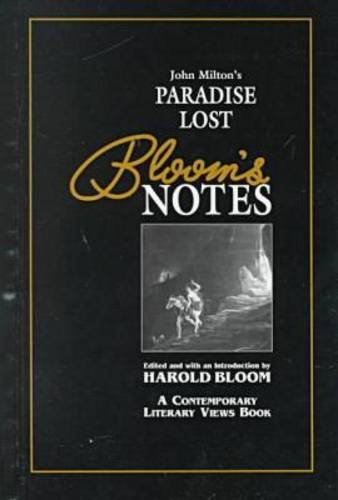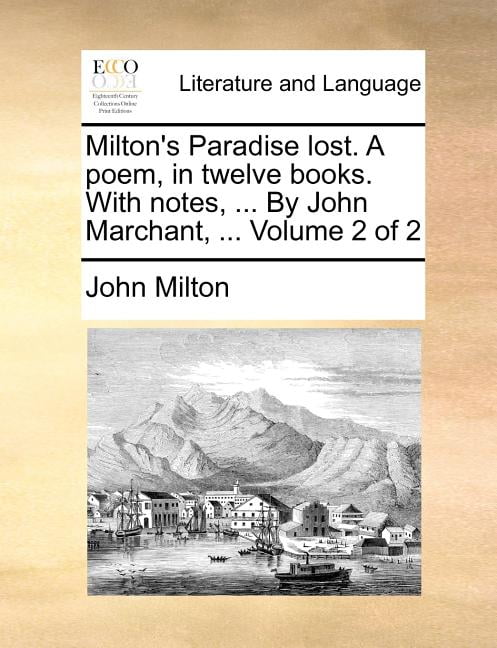
In Areopagitica he defended the freedom of speech even against the Puritans who had re-imposed censorship by an Ordinance for the regulation of printing which stated that “ no book….shall be henceforth printed unless the same be first approved and licensed”.

In his prose works he defended religious, civil and domestic liberties, freedom of the press, Parliament and divorce. In the second part he spent his time writing political pamphlets and taking part in the political activities.
Sparknotes paradise lost pro#
To the first period belong some Italian poems, L’Allegro and Il Penseroso,written under the influence of Petrarch, in which he shows an excellent knowledge of the Italian language, and some Latin and English poems: Pro Populo Anglicano Defensio (defending the execution of Charles I and supporting Cromwell’s regime ) On the Morning of Christ’s Nativity, Lycidas (a lament for a drowned friend ). Works: we may divide his works according to the three periods of his life: a period devoted to study, a period in which he took an active part in the political struggles of his time and the last period in which, completely blind, he retired from public life. It was during this period that he started to write his best poetry. In the meanwhile he had troubles with his eyesight. When the Puritan power ended, he was first arrested and then released.

He chose the Puritans only because he believed that in a Republic, more than in a monarchy, there were the ideal conditions for independent religion.
Sparknotes paradise lost free#
He wrote for the liberty of the press while the Puritans forbade free discussion. He supported Cromwell but he had very little of the strict Puritan. During the Civil War between Royalists and Republicans he became involved in the religious debate of the time and he took an active part on the side of the Puritans. In 1638 he made a tour on the Continent travelling above all in France and Italy where he met Galileo Galilei. He was very much interested in the Latin, Greek and Italian culture.

From a literary point of view, he was not a man of the age. His poetry was influenced by the historical events of his time. signalled by the ‘But’.John Milton is the most important poet and the most representative of the Puritan Age. You can typically spot the volta because there is a shift in the direction of the poet’s thoughts or argument, e.g.

Every Petrarchan sonnet has a turn or volta which usually comes at the beginning of the ninth line, as the octave gives way to the sestet. The use of run-on lines (or enjambment) is also masterly. But the turn from the octave to the sestet is masterly: after the shrinking of horizons witnessed by the final two ‘ a’ rhymes, ‘present’ and ‘prevent’ – only a letter between them, with the meaning of the latter so skilfully capturing the occlusions to Milton’s ambitions – we come to the sestet and are greeted by the word ‘need’, which turns on the ‘de nied’ of the octave and twists it into new life. The enclosed abba rhymes of the sonnet’s octave neatly capture the poet’s sense of being mentally trapped, with his eyesight – and with it, his whole livelihood – about to be extinguished. ‘When I Consider How My Light Is Spent’ is a technical tour de force, too.


 0 kommentar(er)
0 kommentar(er)
